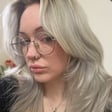
Joyce A. Miller
When Joyce A. Miller turned 60, her curiosity fueled the writing for her debut historical fiction novel, Joe Harris, the Moon, based on her granduncle’s life at the beginning of the Twentieth Century. Her cousin, Bob Harris, who is a huge baseball fan and cares deeply about their family history, did most of the research for the story. It was a joy for Miller to piggyback on his research and dig deeper into the history of southwestern Pennsylvania and the baseball world. She wanted to unravel the truth of Joe Harris’ story through fiction.
Miller retired at 60 and moved to the Church Hill section of Richmond, Virginia. She moved to Richmond to be closer to her adult children, who went to college at VCU and never returned home. She lives in renovated, red brick building that was once a 1910 industrial brush factory. Miller can almost see her Uncle Joe as a young man leaning against the massive twelve-inch by twelve-inch oak wooden pillars in her living room.
Miller lives with her husband, Alan, and her retired racing greyhound, Coheed. Coheed, like all racing greyhounds, was registered with a racing name. The breeder gave him and his littermates the names of rock and roll bands, and he became CoheedandCambria. Miller just kept the Coheed part. Miller wonders if Coheed could name her, would he keep “Joyce” or name her something else.
https://www.goodreads.com/book/show/56621068-joe-harris-the-moon



















